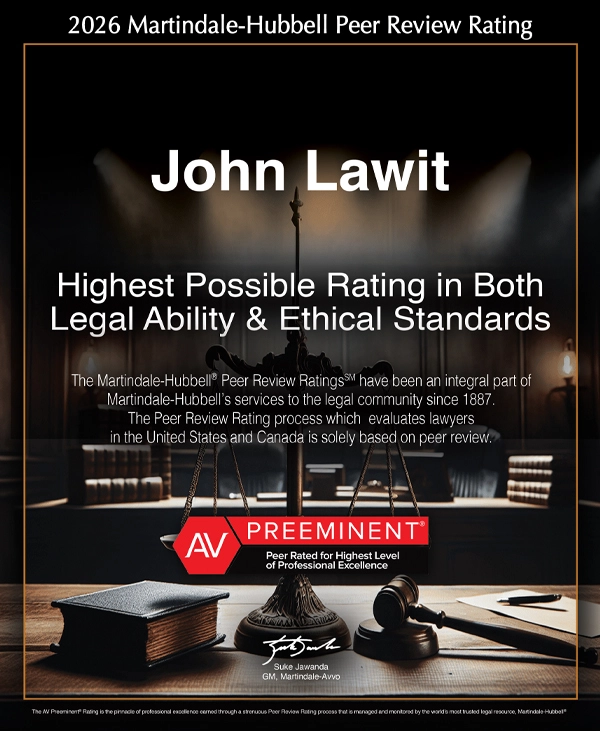Concerned about immigration issues following President Donald Trump's re-election? Click Here
 The Violence Against Women Act (VAWA) allows certain immigrant victims of domestic violence to apply for a Green Card without the need to be sponsored by a U.S. citizen or lawful permanent resident. This can ensure that abuse victims will be able to leave dangerous situations, receive protection from law enforcement, and avoid being uprooted from their communities and deported from the United States. However, it is important to understand the criteria that a person will need to meet to be eligible to self-petition for a Green Card under VAWA.
The Violence Against Women Act (VAWA) allows certain immigrant victims of domestic violence to apply for a Green Card without the need to be sponsored by a U.S. citizen or lawful permanent resident. This can ensure that abuse victims will be able to leave dangerous situations, receive protection from law enforcement, and avoid being uprooted from their communities and deported from the United States. However, it is important to understand the criteria that a person will need to meet to be eligible to self-petition for a Green Card under VAWA.
You may be eligible to self-petition under VAWA if:
You are married to or were married to a U.S. citizen or permanent resident, and your spouse abused you; OR
Your parent(s) are U.S. citizens or permanent residents, and your parent(s) abused you; OR
Your son or daughter is a U.S. citizen or permanent resident, and your child abused you.
“Abuse” under VAWA can include physical abuse, sexual abuse, emotional abuse, mental abuse, and/or economic abuse. Generally, if you have experienced battery or other forms of extreme cruelty that were committed by one of the people listed above, you will be able to apply for a Green Card. Notably, either men or women can self-petition for a Green Card through VAWA.
To file for yourself (and any eligible family members) under VAWA, you will need to complete and submit form I-360 (Petition for Amerasian Widow(er), or Special Immigrant Juvenile), along with supporting documentation. Forms of documentation that may be required include:
Evidence of your identity – A picture ID for yourself, such as a driver’s license or passport, may be used to establish your identity, and other documents may also be submitted, such as a birth certificate.
Evidence of your relationship to your abuser – This may include a marriage certificate showing that you are married to a U.S. citizen or lawful permanent resident, divorce papers showing that your marriage has ended, or a birth certificate of a child who was born in the United States. You may also need to show that you entered into a marriage in good faith, such as photos of your wedding or documentation that you lived together with your spouse, shared finances, and maintained a close relationship.
Evidence of the abuser’s immigration status – You may provide documentation of a person’s status as a U.S. citizen or lawful permanent resident, such as a birth certificate, passport, or Green Card. If they have taken steps to sponsor you for an immigrant visa, you may submit an approval notice for an I-130 petition.
Proof of residence – Documentation that you lived in the United States with your abuser may include lease agreements, utility bills, or other records showing the same address for both you and your abuser.
Documentation of abuse – To show that you were the victim of battery or extreme cruelty, you may provide medical records documenting injuries, police reports, restraining orders/protective orders, photographs of your injuries, school/work records documenting absences due to fear of the abuser, financial records documenting the loss of earnings due to abuse, and witness statements from friends or family members corroborating your accounts of abuse.
Evidence of good moral character – Criminal records or background checks may need to show that you have not been convicted of crimes or engaged in activities that would make you ineligible for immigration.
While the Violence Against Women Act may provide you with relief to ensure that you will have necessary protections against abuse and be able to continue living in the United States, the requirements you will need to meet in these situations can be very complicated. At John W. Lawit, LLC, we can advise you of your rights, help you compile the required documents, and guide you through the process of applying for a Green Card. To learn more about qualifying for a Green Card through VAWA and the application process, please contact our experienced Grapevine immigration attorneys by calling 214-609-2242.
Sources:
https://www.uscis.gov/green-card/green-card-eligibility/green-card-for-vawa-self-petitioner
https://www.law.cornell.edu/cfr/text/8/204.2
https://www.ilrc.org/sites/default/files/documents/document_gathering_for_self-petitioning_under_the_violence_against_women_act.pdf
